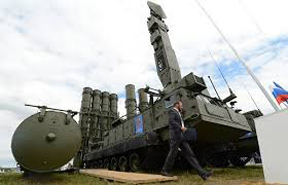 WASHINGTON: Pakistan may use nuclear weapons against India if the latter goes for a large scale military assault against it in retaliation for a major terror attack emanating from across the border; two top American experts have warned US lawmakers.
WASHINGTON: Pakistan may use nuclear weapons against India if the latter goes for a large scale military assault against it in retaliation for a major terror attack emanating from across the border; two top American experts have warned US lawmakers.
Given the presence of a strong government in New Delhi and the pressure on it from Indian citizens in the event of a repeat of 26/11 type terror attack, the ties between the two neighbors have greater danger of escalating towards a devastating nuclear warfare, in particular from Pakistan.
Such a dangerous scenario can only be avoided by the US working with Islamabad to ensure that there is no further large scale terror attack on India emanating from Pakistan, two top American experts –
George Perkovich and Ashley Tellis – told members of the powerful Senate Armed Services Committee Subcommittee on Strategic Forces during a hearing on Wednesday.
“South Asia is the most likely place nuclear weapons could be detonated in the foreseeable future. This risk derives from the unusual dynamic of the India-Pakistan competition,” said Perkovich, vice president for Studies Carnegie Endowment for International Peace.
“The next major terrorist attack in India, emanating from Pakistan, may trigger an Indian conventional military riposte that could in turn prompt Pakistan to use battlefield nuclear weapons to repel an Indian incursion. India, for its part, has declared that it would inflict massive retaliation in response to any nuclear use against its territory or troops,” he said.
“Obviously, this threatening dynamic – whereby terrorism may prompt conventional conflict which may prompt nuclear war – challenges Indian and Pakistan policy-makers. India and Pakistan both tend to downplay or dismiss the potential for escalation, but our own history of close nuclear calls should make US officials more alert to these dangers. The US is the only outside power that could intervene diplomatically and forcefully to de-escalate a crisis,” Perkovich said.
Tellis said the most useful US contribution towards preventing a Pakistani use of nuclear weapons in such a scenario – and the Indian nuclear retribution that would result thereafter – would be to press Pakistan to exit the terrorism business or risk being left alone (or, even worse, the object of sanctions) if a major Indian military response ensues in the aftermath of any pernicious terrorist attack.
“Other than this, there is little that the United States can do to preserve deterrence stability between two asymmetrically-sized states where the gap in power promises to become even wider tomorrow than it is today,” he said.
Both the experts, who are from the Carnegie, told members of the Senate sub-committee that Pakistan has more nuclear weapons than that of India.–PTI






